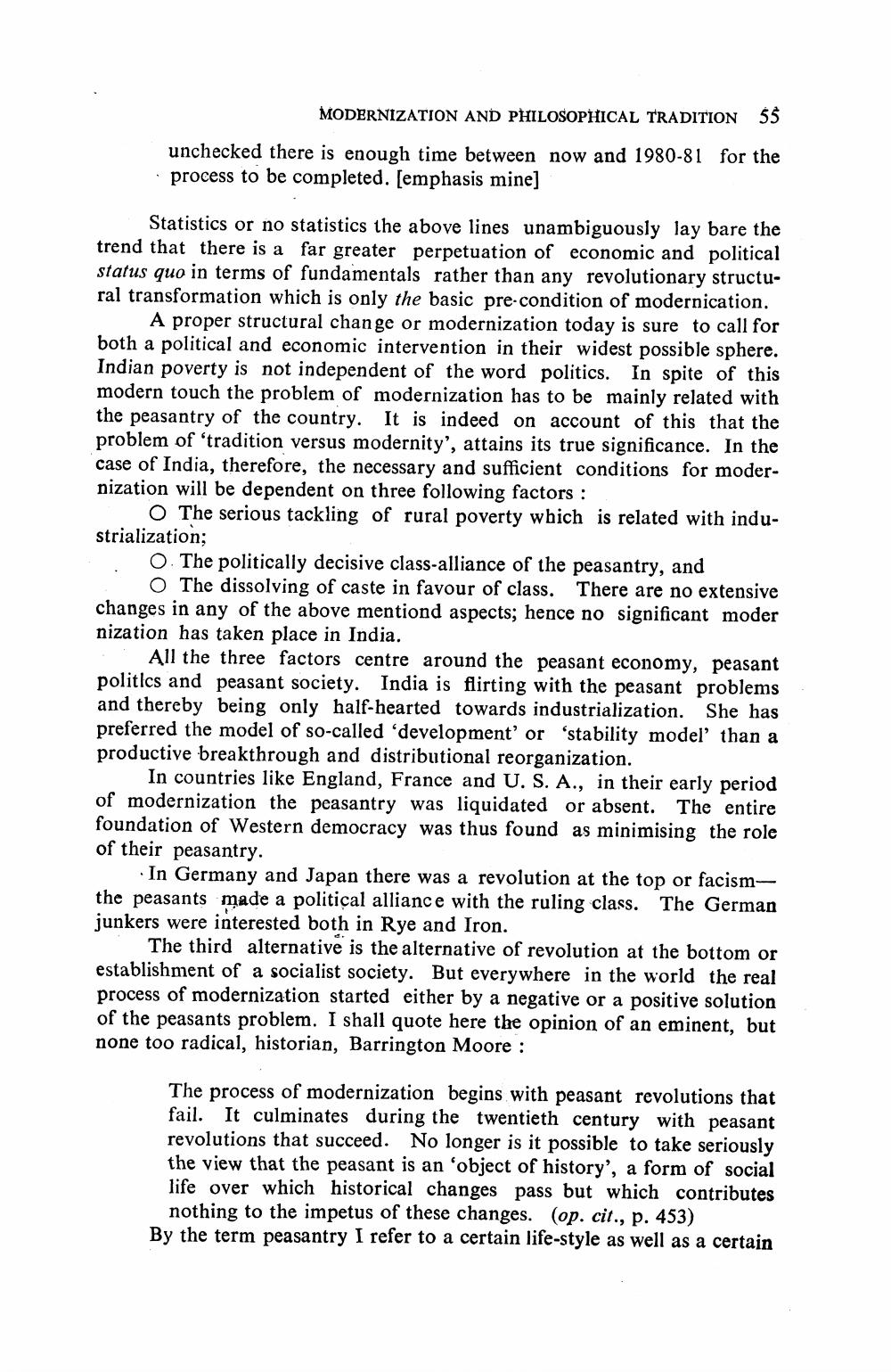Book Title: Modernization And Philosophical Tradition India And Third World Author(s): Sachindranath Ganguly Publisher: Sachindranath Ganguly View full book textPage 9
________________ MODERNIZATION AND PHILOSOPHICAL TRADITION 55 unchecked there is enough time between now and 1980-81 for the process to be completed. [emphasis mine] Statistics or no statistics the above lines unambiguously lay bare the trend that there is a far greater perpetuation of economic and political status quo in terms of fundamentals rather than any revolutionary structural transformation which is only the basic pre-condition of modernication. A proper structural change or modernization today is sure to call for both a political and economic intervention in their widest possible sphere. Indian poverty is not independent of the word politics. In spite of this modern touch the problem of modernization has to be mainly related with the peasantry of the country. It is indeed on account of this that the problem of 'tradition versus modernity', attains its true significance. In the case of India, therefore, the necessary and sufficient conditions for modernization will be dependent on three following factors: O The serious tackling of rural poverty which is related with industrialization; O. The politically decisive class-alliance of the peasantry, and O The dissolving of caste in favour of class. There are no extensive changes in any of the above mentiond aspects; hence no significant moder nization has taken place in India. All the three factors centre around the peasant economy, peasant politics and peasant society. India is flirting with the peasant problems and thereby being only half-hearted towards industrialization. She has preferred the model of so-called 'development' or 'stability model' than a productive breakthrough and distributional reorganization. In countries like England, France and U. S. A., in their early period of modernization the peasantry was liquidated or absent. The entire foundation of Western democracy was thus found as minimising the role of their peasantry. In Germany and Japan there was a revolution at the top or facismthe peasants made a political alliance with the ruling class. The German junkers were interested both in Rye and Iron. The third alternative is the alternative of revolution at the bottom or establishment of a socialist society. But everywhere in the world the real process of modernization started either by a negative or a positive solution of the peasants problem. I shall quote here the opinion of an eminent, but none too radical, historian, Barrington Moore : The process of modernization begins with peasant revolutions that fail. It culminates during the twentieth century with peasant revolutions that succeed. No longer is it possible to take seriously the view that the peasant is an 'object of history', a form of social life over which historical changes pass but which contributes nothing to the impetus of these changes. (op. cit., p. 453) By the term peasantry I refer to a certain life-style as well as a certainPage Navigation
1 ... 7 8 9 10 11 12 13 14
